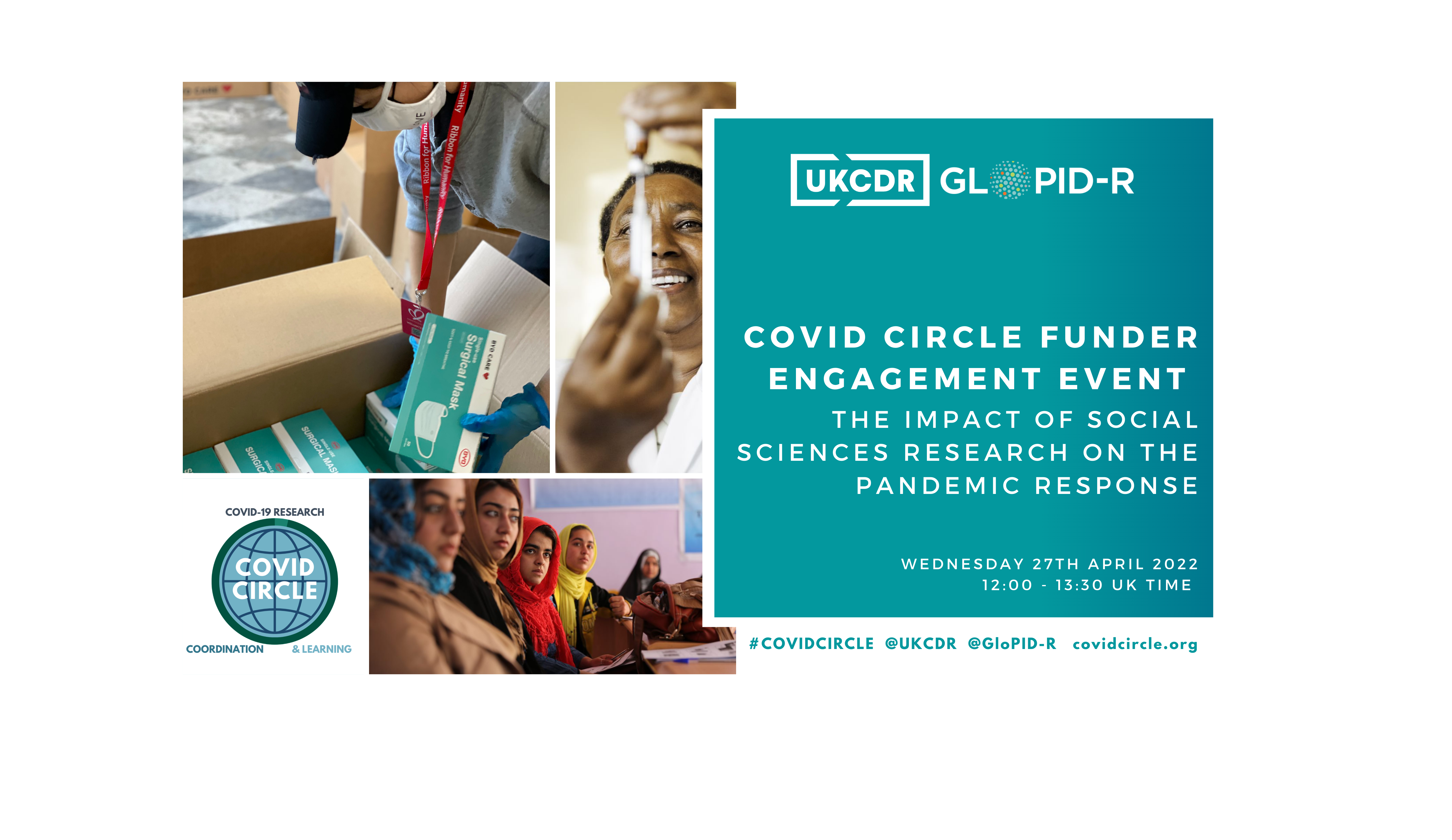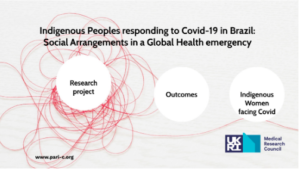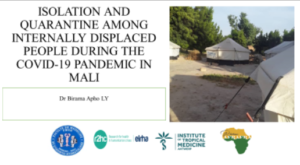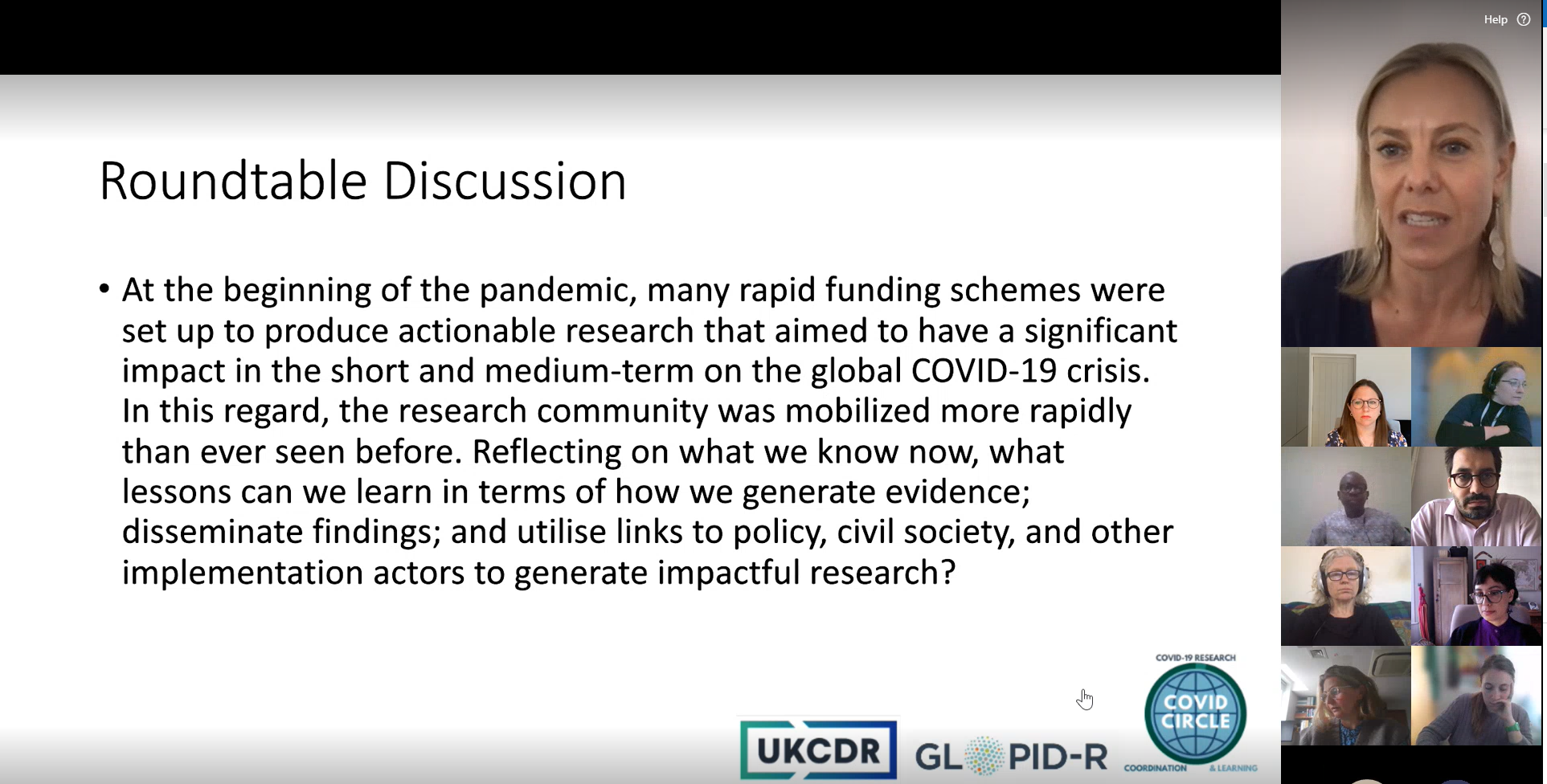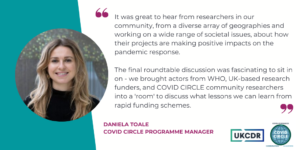Dr Nina Gobat
Nina Gobat holds the position of Technical Officer in WHO’s Community Readiness and Resilience Unit within the World Health Emergencies programme. She is the lead for the WHO Social Science in Outbreak Response thematic area of the COVID-19 Research Roadmap and leads the WHO COVID-19 Social Science Technical Working Group.
Prof Christine McCourt
Christine McCourt is Professor of Maternal and Child Health at the School of Health Sciences, City, University of London, where she leads the Centre for Research in Maternal and Child Health. Her key interests are in institutions and service change and reform, equity, and the culture and organisation of maternity care. She has worked for a number of years on applying anthropological theory and methodology to the study of ‘western’ healthcare.
Maria Paula Prates
Maria Paula Prates is a Research Fellow in Medical Anthropology, at City, University of London, and a Research Fellow in Medical Anthropology of the Anthropocene at University College London. Until April 2022, she was an Adjunct Professor in Medical Anthropology at Federal University of Health Sciences of Porto Alegre (UFCSPA). Her key interests are in Indigenous Peoples’ health, the Anthropocene, maternal health, collaborative methodologies, and Indigenous Ontologies.
Prof Birama Apho Ly
Birama Apho Ly is a researcher from the University of Sciences, Techniques and Technologies of Bamako and the Director of the Modibo Goita Analysis and Research Center for Sahelo-saharan space (CARESS) at Alioune Blondin Beye Peace Keeping School (EMPABB). His research focuses are on HIV, COVID-19, telemedicine, health information, health during crisis and peace, security, and development. He was previously based at the University of Abomey-Calavy (Ouidah, Benin), Laval University (Quebec, Canada) and the University of Ottawa (Ontario, Canada).
Prof Katherine Brickell
Katherine Brickell is Professor of Human Geography at Royal Holloway, University of London. Her current UKRI GCRF-funded research studies in Cambodia are focused on the gendered and intergenerational impacts of the COVID-19 pandemic. Both studies focus strongly on financial inclusion, health and nutrition, and the issue of over-indebtedness exacerbated by the pandemic.

